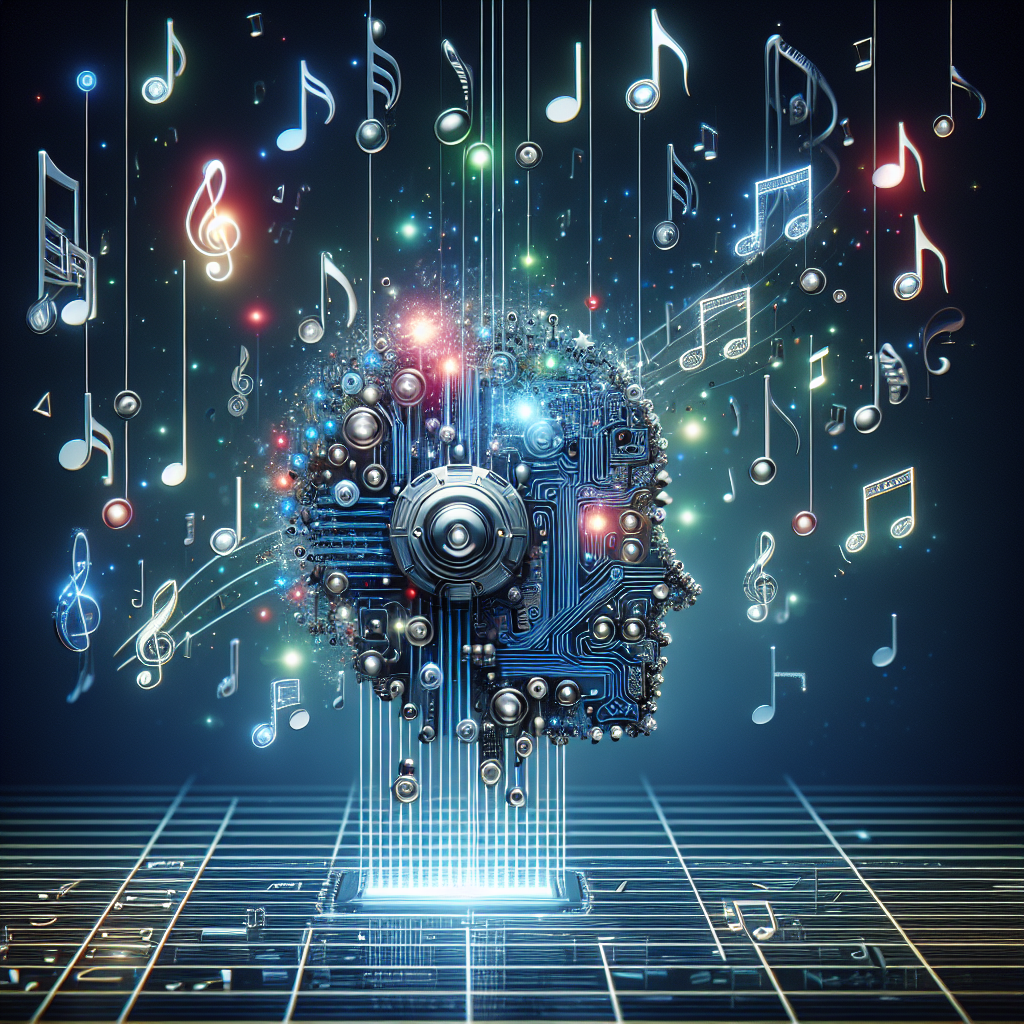Artificial intelligence (AI) has been making waves in various industries, from healthcare to finance to transportation. But one area that has seen a particularly interesting intersection with AI is music theory. AI is now being used to compose music, analyze musical patterns, and even create new musical styles. This fusion of technology and art has led to some exciting developments and has sparked debates about the role of AI in the creative process.
AI and music theory may seem like an unlikely pair, but the two actually have a lot in common. Both involve complex patterns and structures that can be analyzed and manipulated. Music theory is the study of the principles and elements of music, such as melody, harmony, rhythm, and form. AI, on the other hand, is a branch of computer science that focuses on creating intelligent machines that can learn, reason, and solve problems.
One of the most exciting applications of AI in music theory is in the realm of music composition. AI algorithms can be trained on vast amounts of musical data, such as existing songs and compositions, to learn the patterns and structures that make up different musical styles. These algorithms can then generate new music that is inspired by these patterns, creating original compositions that sound like they were written by human composers.
One example of this is the AI program created by researchers at Sony CSL, called Flow Machines. This program has been used to compose songs in various styles, from jazz to pop to classical. The program analyzes a database of songs to learn the characteristics of each style, and then generates new compositions that adhere to these characteristics. The results have been impressive, with many listeners unable to distinguish between AI-generated music and music composed by humans.
Another interesting application of AI in music theory is in the analysis of musical patterns. AI algorithms can be used to analyze large datasets of music to identify trends and patterns that may not be immediately apparent to human composers. This can help musicians and composers gain new insights into their own work and find inspiration for new compositions.
AI can also be used to assist musicians in the creative process. For example, AI algorithms can generate musical accompaniments in real-time based on a musician’s input, allowing for more spontaneous and collaborative musical performances. AI can also be used to help musicians with tasks such as transcribing music, identifying chords and melodies, and even providing feedback on a musician’s performance.
While the intersection of AI and music theory has led to many exciting developments, it has also raised some ethical and philosophical questions. Some critics argue that AI-generated music lacks the emotional depth and creativity of music composed by humans, and that relying too heavily on AI in the creative process could stifle artistic innovation. Others worry about the implications of using AI to create music that mimics the style of famous composers, raising questions about originality and intellectual property rights.
Despite these concerns, the use of AI in music theory continues to grow and evolve. As AI algorithms become more sophisticated and powerful, they have the potential to revolutionize the way music is composed, performed, and experienced. The possibilities are endless, from creating entirely new musical genres to helping musicians push the boundaries of their own creativity.
FAQs:
Q: Can AI compose music on its own?
A: Yes, AI algorithms can be trained to compose music on their own by analyzing existing musical data and generating new compositions based on the patterns and structures they have learned.
Q: How does AI analyze music?
A: AI algorithms can analyze music by breaking it down into its component parts, such as melody, harmony, rhythm, and form. These algorithms can then identify patterns and trends in the music that may not be immediately apparent to human composers.
Q: Can AI create music in different styles?
A: Yes, AI algorithms can be trained to create music in different styles by analyzing a database of songs in that style and generating new compositions that adhere to the characteristics of that style.
Q: Can AI assist musicians in real-time?
A: Yes, AI algorithms can assist musicians in real-time by generating musical accompaniments based on a musician’s input, transcribing music, identifying chords and melodies, and providing feedback on a musician’s performance.
Q: What are some ethical concerns surrounding AI-generated music?
A: Some ethical concerns surrounding AI-generated music include questions about the emotional depth and creativity of AI-generated music compared to music composed by humans, as well as concerns about the implications of using AI to create music that mimics the style of famous composers.

